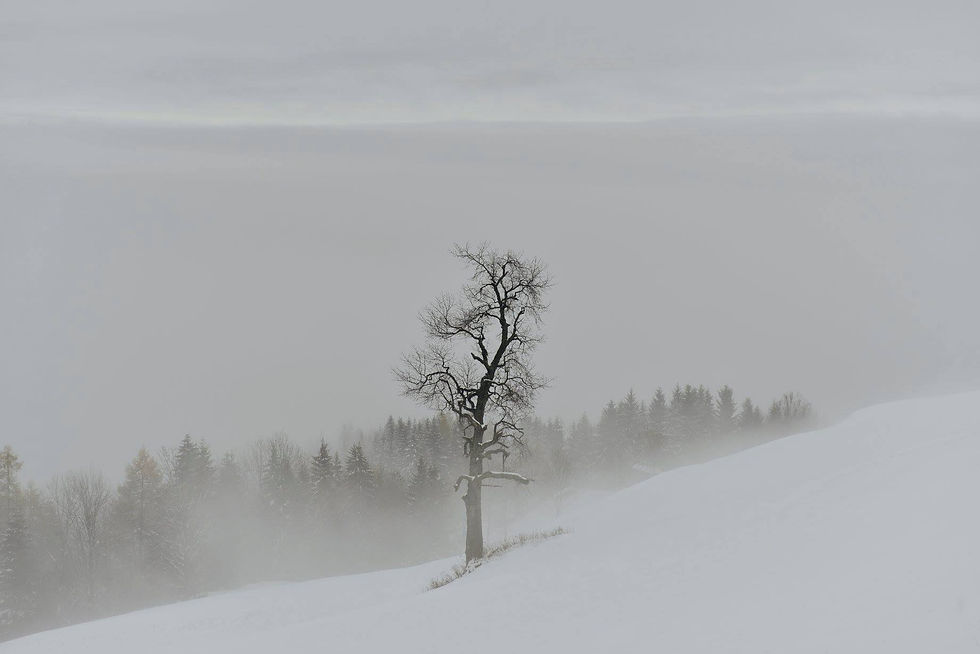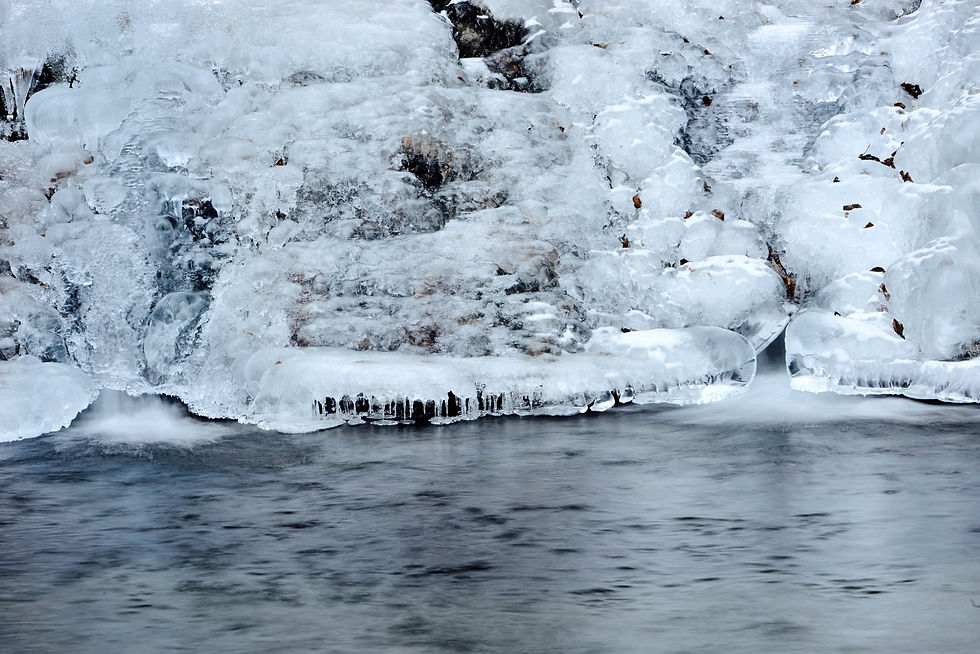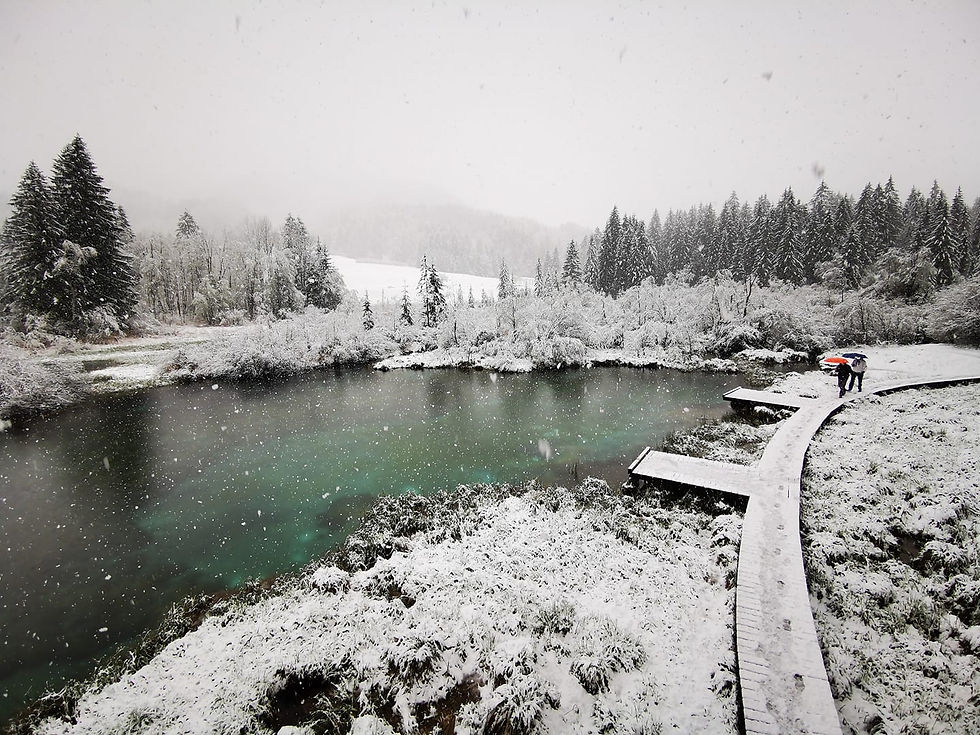THE WINTER ENERGY in the Context of Chinese Medicine
- Aleksandra Boj

- Jan 13, 2022
- 4 min read
Updated: Jan 10, 2024
»... here it is: my winter. It's an open invitation to transition into a more sustainable life and to wrest back control over the chaos I've created. It's a moment when I have to step into a solitude, and into contemplation …« Katherine May, Wintering

Ancient Chinese wisdom suggests living in sync with nature's cycles for good health. Adjusting our routines with each season can help keep our bodies and minds healthy and strong throughout the year.
WINTER ENERGY
Winter is in full swing. Its energy runs deep and strong, characterized by minimal or no growth—a period for waiting, resting, and hibernating. In Chinese medicine, Winter embodies the utmost Yin aspect, marked by its chilling temperatures. Yin signifies darkness, coldness, slowness, stability, and grounding. It prompts us to turn our energy inwards. The cooler, shorter, and darker days encourage a meditative atmosphere for increased rest and reflection. In essence, Winter offers the ideal opportunity to take it slow and preserve our energy.
THE WATER ELEMENT
In the Five Element Theory, Winter is linked to the Water element. Water's flow moves inward. It's pretty amazing - Water is resilient, changing effortlessly from liquid to solid or gas, showcasing its incredible power in all forms! Adaptability is its forte; it takes the shape of its container, whether it's a river, lake, ocean, or even something as simple as a cup of tea, a bath, or a swimming pool. Inside our bodies, Water symbolizes all things moisture-related. It's often seen as the counterbalance to Fire - where Water represents Yin and Fire embodies Yang.
THE KIDNEYS and URINARY BLADDER
Water is connected with the Kidneys and Urinary Bladder, and it's crucial to give them some tender loving care during Winter. The Kidneys are like the energy powerhouse (Qi) in our bodies, often called the "root of life."They stash away all that reserve Qi in case we need it during stressful times, changes, or to help us heal, prevent illness, and age gracefully. That’s why it’s crucial to refuel these reserves that we've tapped into throughout the year.
The smartest way to do this is by finding a balance between chilling out and hustling, avoiding intense workouts (especially outdoors), keeping warm, and chowing down on foods that nourish us in this chilly season and specifically support our Kidneys.

FEAR - THE EMOTION OF WINTER
In Chinese medicine, every season matches up with a particular emotion. Winter links up with FEAR and the Water element. When our Water element gets out of whack, we might sense fear in various forms. We could become excessively vigilant, have pessimistic outlooks triggering anxiety, and, at times, even paranoia. Fear runs deep, hits hard in the body’s lower regions, impacting the lower back, pelvis, and legs. In situations of intense fear, someone might lose control over their bladder.
All humans experience fear occasionally. It's a natural and normal response to danger or threats that has aided our survival as a species. However, when fear becomes extreme, it indicates an imbalance in the Water element (Kidney Qi).
NOURISHING WINTER DIET
We can support our body in Winter by eating appropriate foods. Some recommendations for winter diet:
* Enjoy soups, stews and warm porridge (rice, buckwheat, oat).
* Garnish your food with goji berries, walnuts and black sesame seeds.
* Include energetic, warming foods such as anchovies, bay leaves, chestnuts, chicken, fennel, leeks, mussels, mutton, nutmeg, pine nuts, and sweet potatoes.
* Use warming spices, like garlic, ginger, and cardamom.
* Millet, sesame seeds, kidney beans, lamb, beef, goose, duck, eggs, grains, seeds and nuts are all good tonics for the Kidneys.
* Bone broth is another important food to consume during the winter months, as it supports the bones and the Kidneys.
* Salted foods should be decreased because the Kidneys are affected by salt.
* Choose foods that are dark in color (the color of water element is dark blue or black), or have kidney shape, such as beans.
WINTER ACTIVITIES
While Winter is a period for rest, it remains crucial to maintain enough moderate activity to keep the spine and joints warm, such as stretching, yoga, Qi Gong, or going for a walk. It's truly beneficial to maintain this routine, even if it's only for 15 minutes each day.
Winter is time for internal work as your Qi is deep inside. Take more time for self-reflection. Meditation, journaling, or reading are great winter activities.
As a former librarian and avid book enthusiast, I'd like to wrap up by recommending a nourishing winter read: Katherine May's novel, "WINTERING - "
»More than any other season, winter requires a kind of metronome that ticks away its darkest beats, giving us a melody to follow into spring. The year will move on either way, but by paying attention to it, feeling its beat, and noticing the moments of transition – perhaps even taking time to think about what we want from the next phase in the year – we can get the measure of it. If we resist the instinct to endure those darkest moments alone, we might even make the opportunity to share the burden, and to let a little light in.« Katherine May, Wintering

Happy Winter!
Sources:
J. Kirkwood. 'The Way of the Five Elements.' (2016)
Ted J. Kaptchuk. 'The Web that has no Weaver.' (2000)
Katherine May. 'Wintering. The Power of Rest and Retreat in Difficult Times.' (2020)
_______________________________________________________________________________




Comments